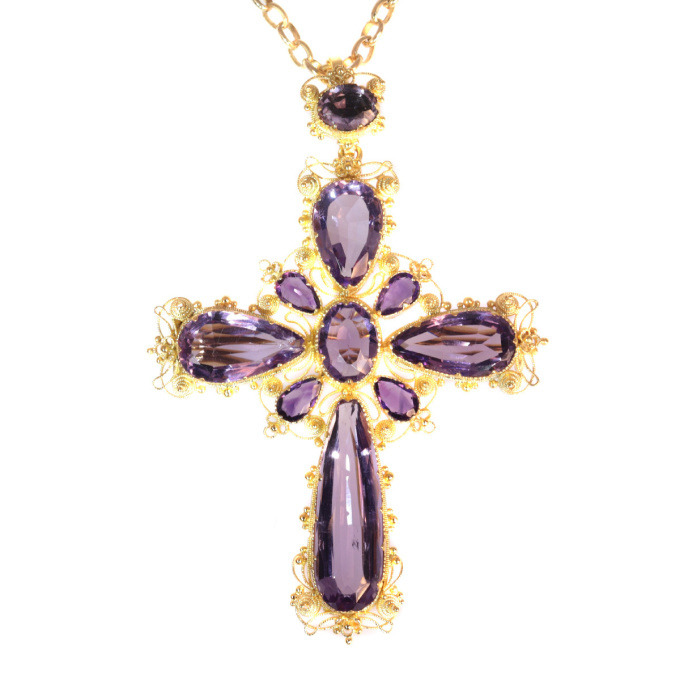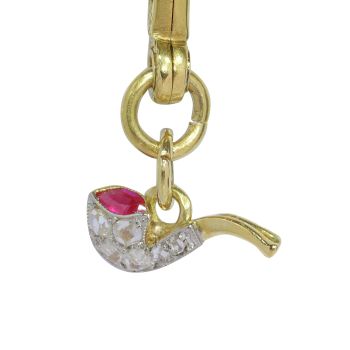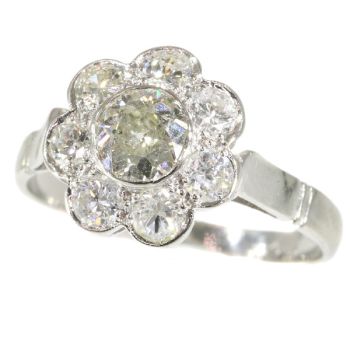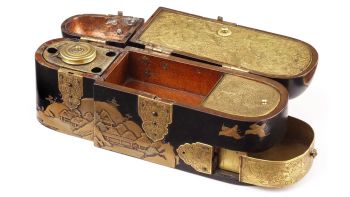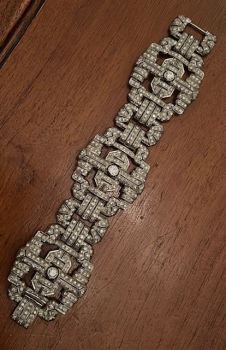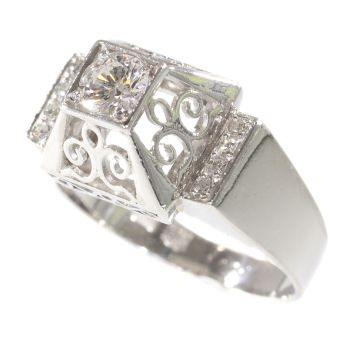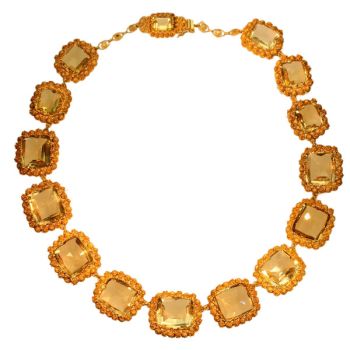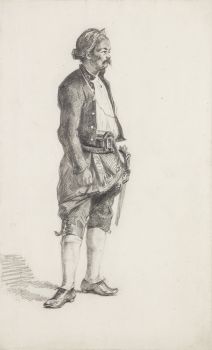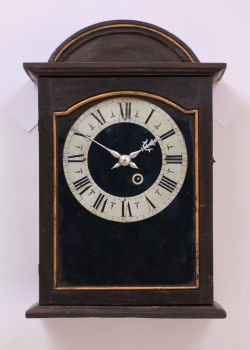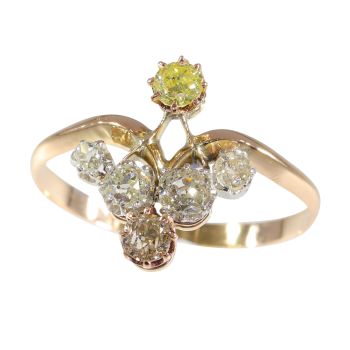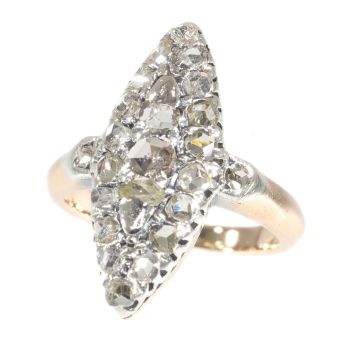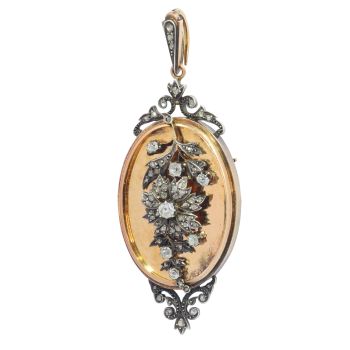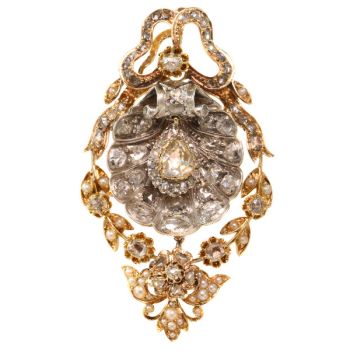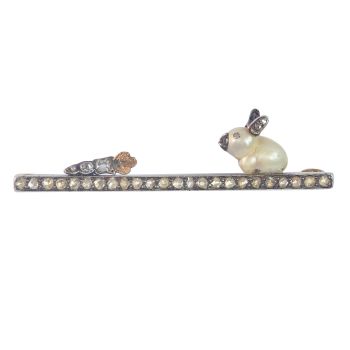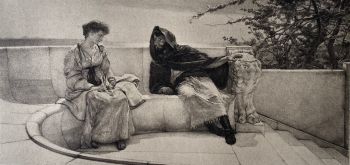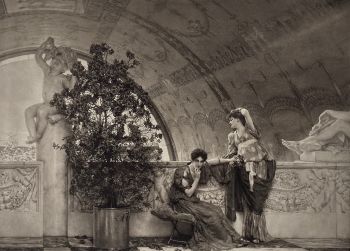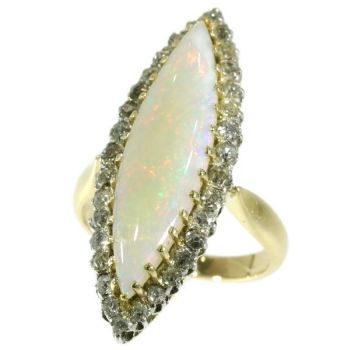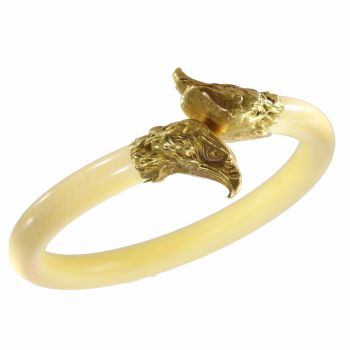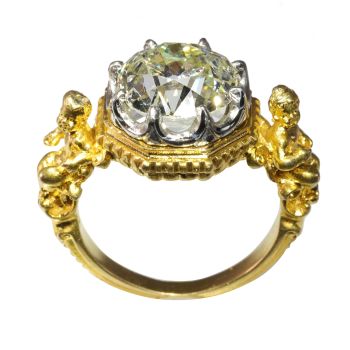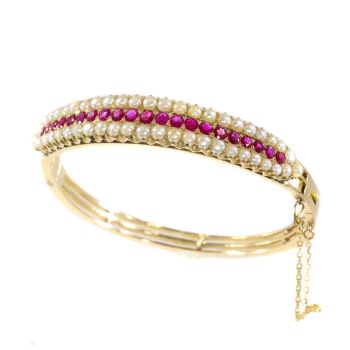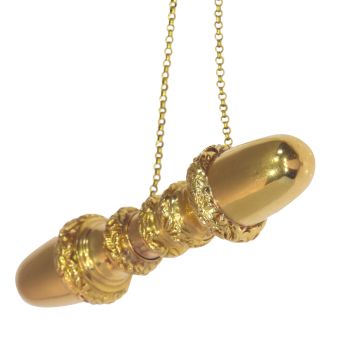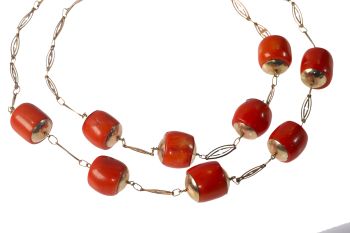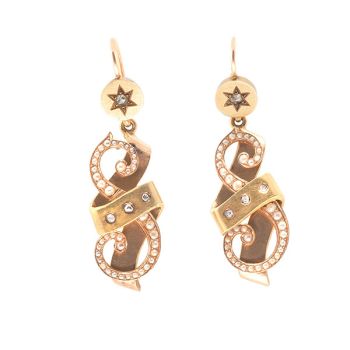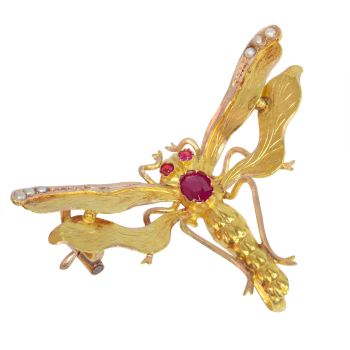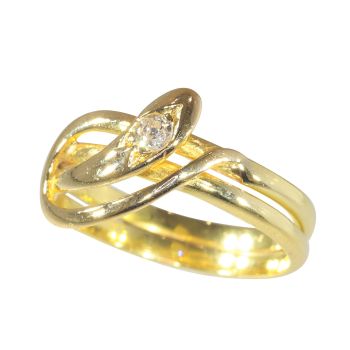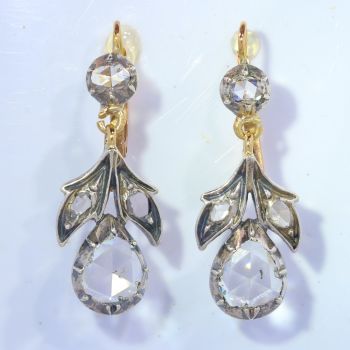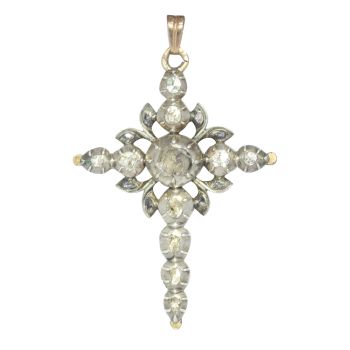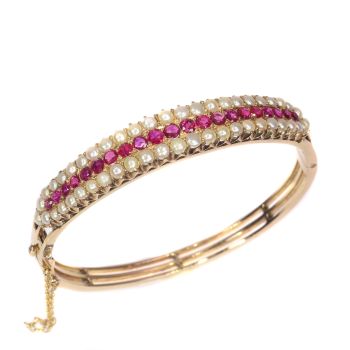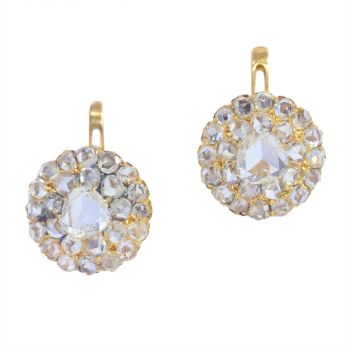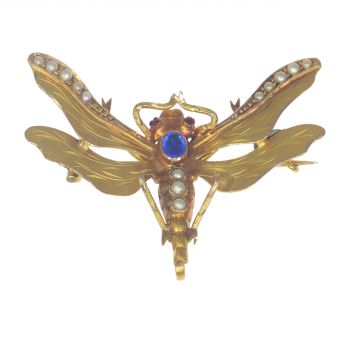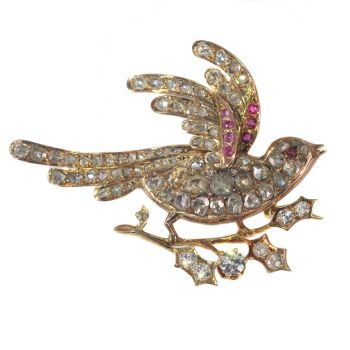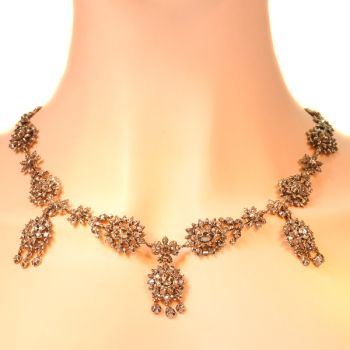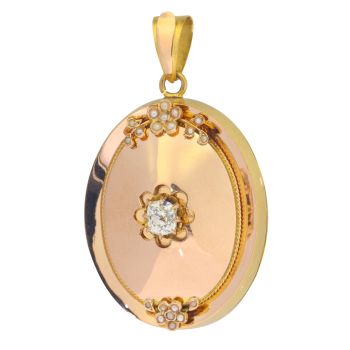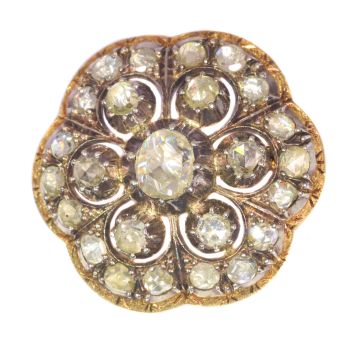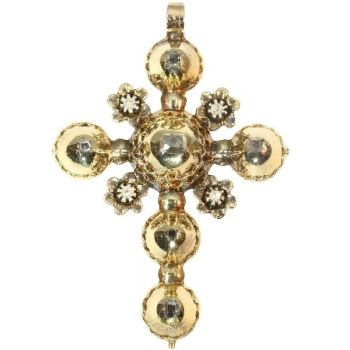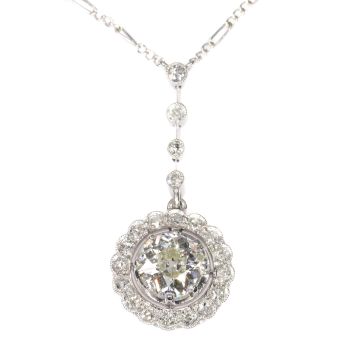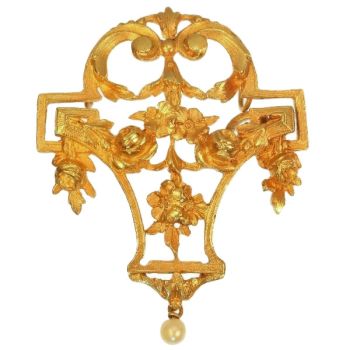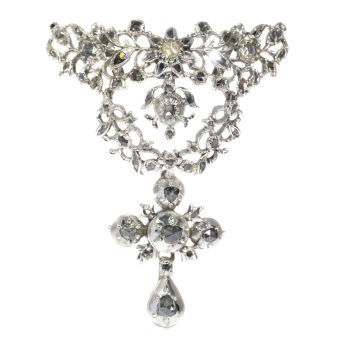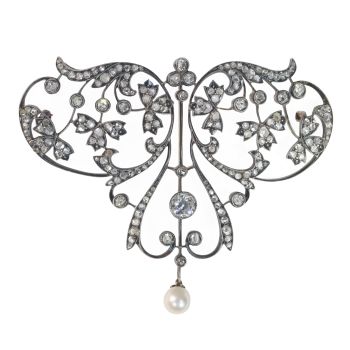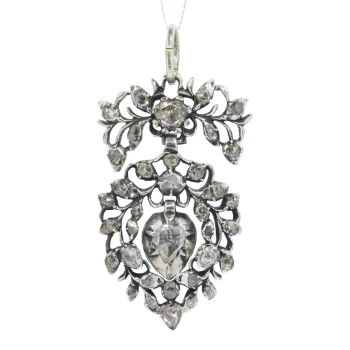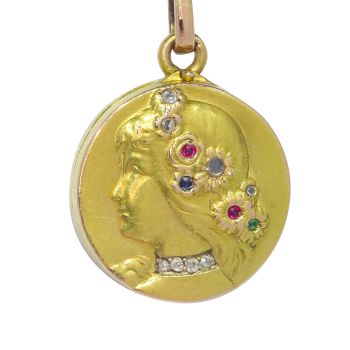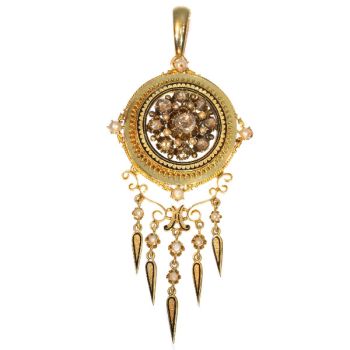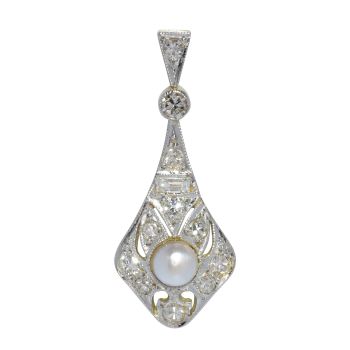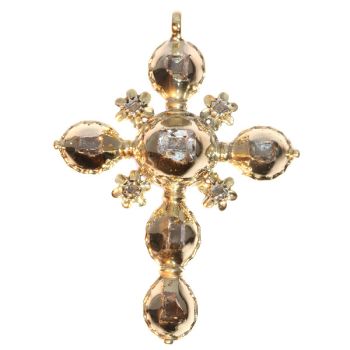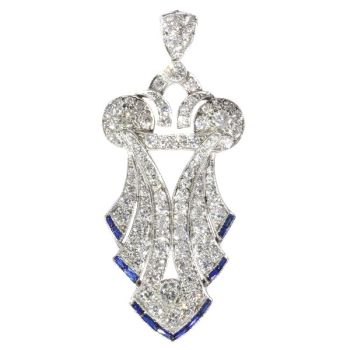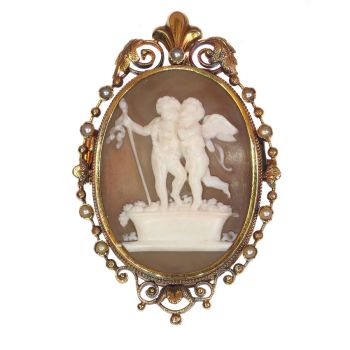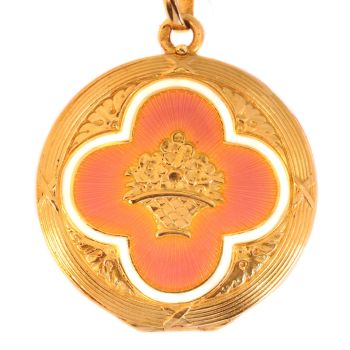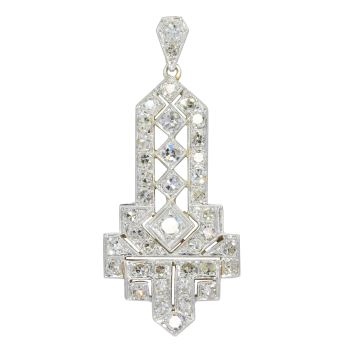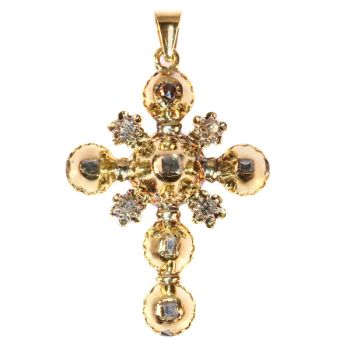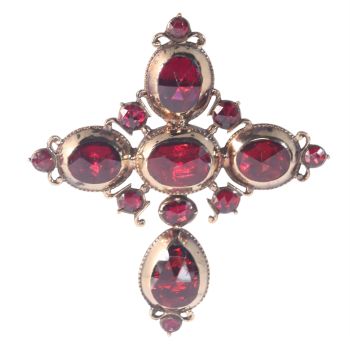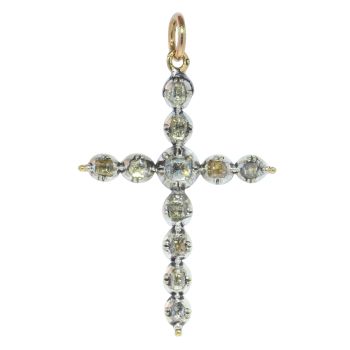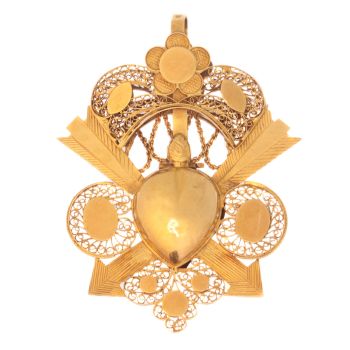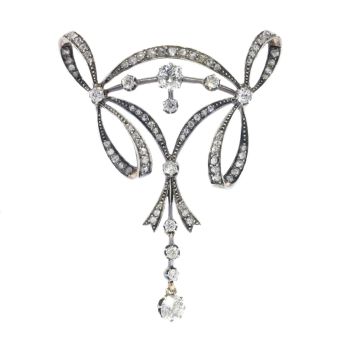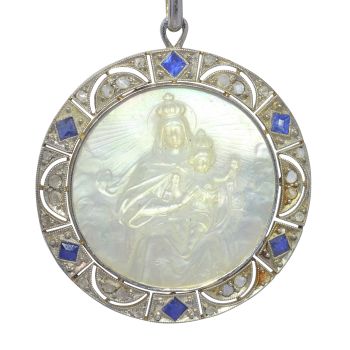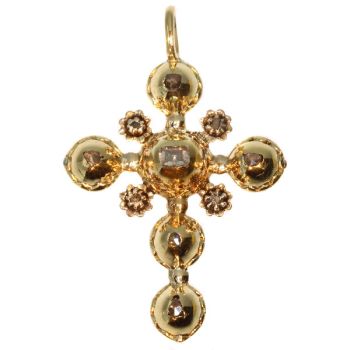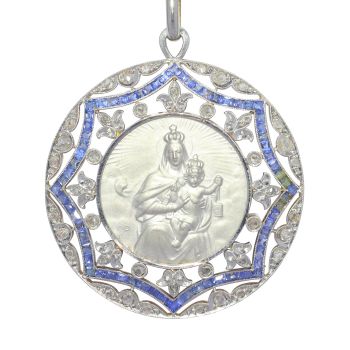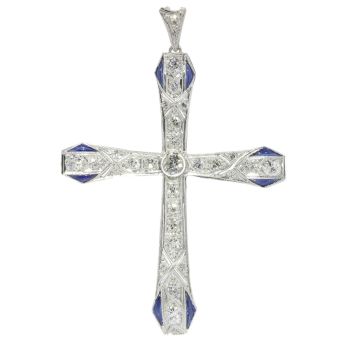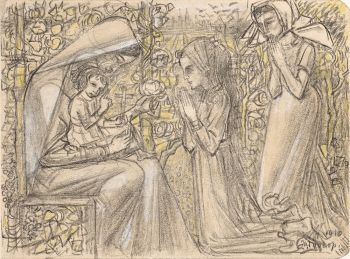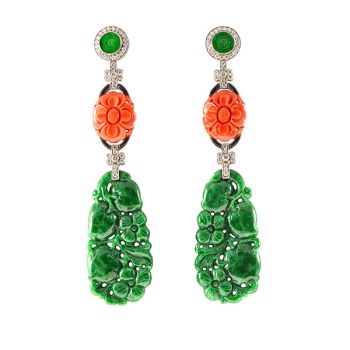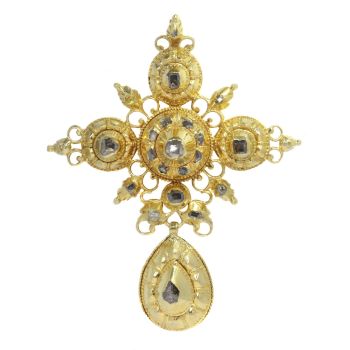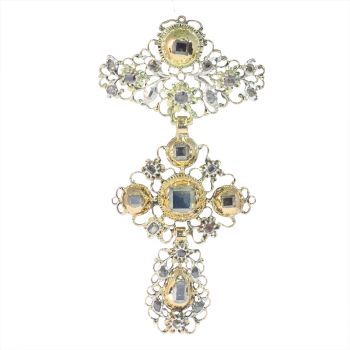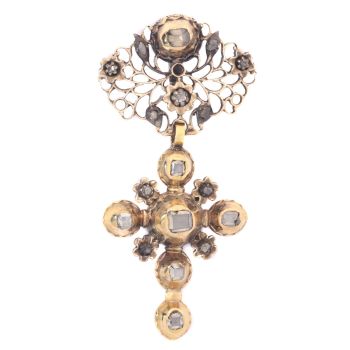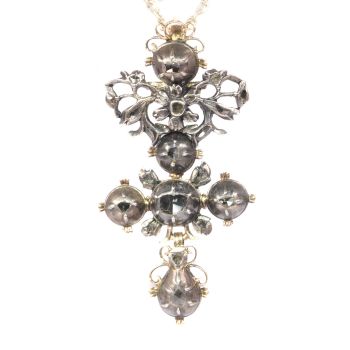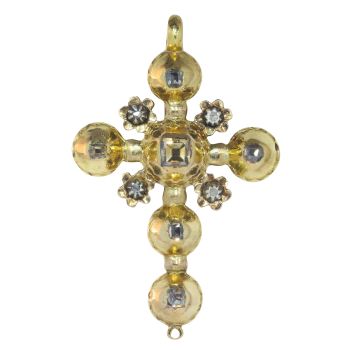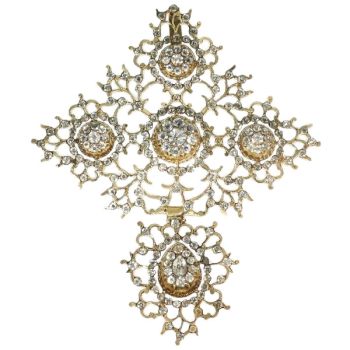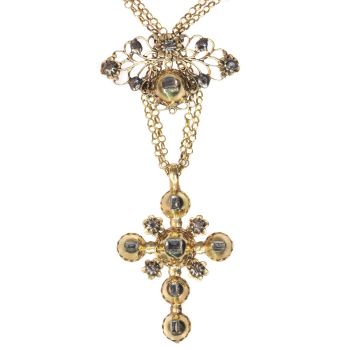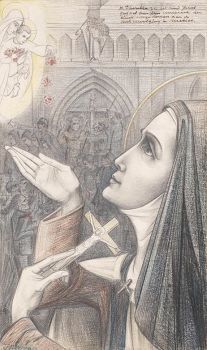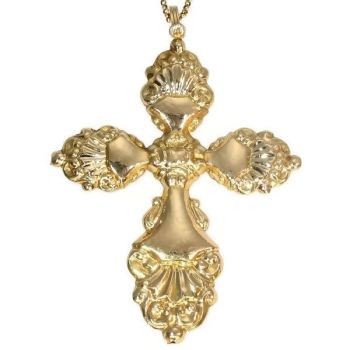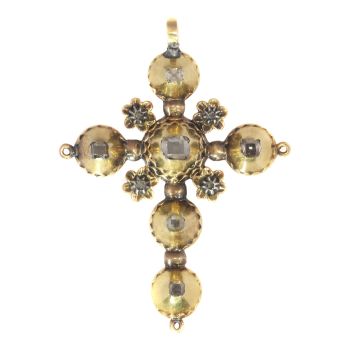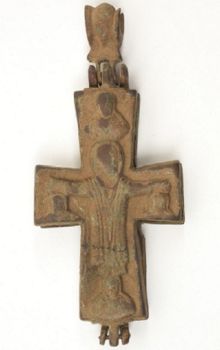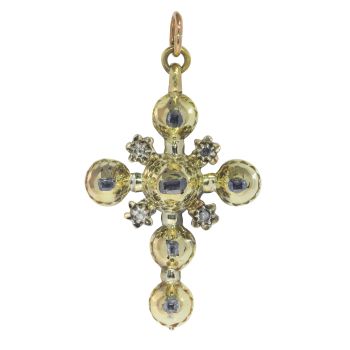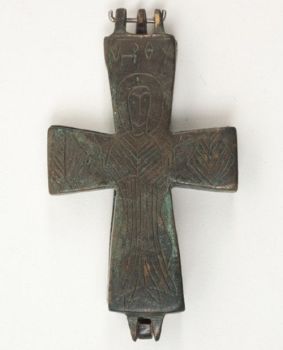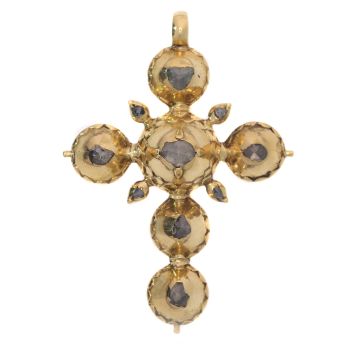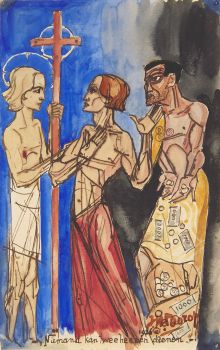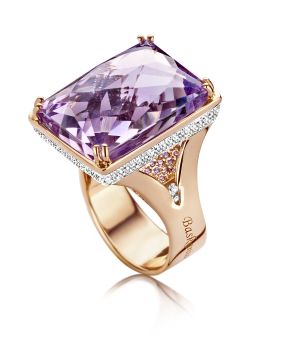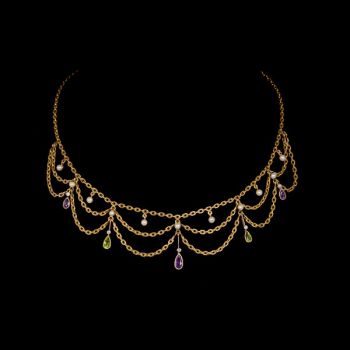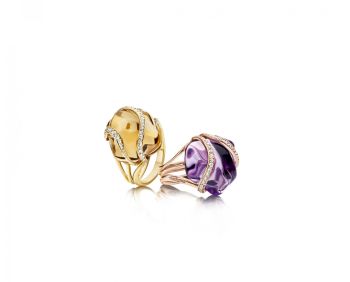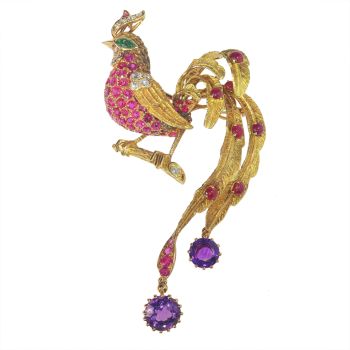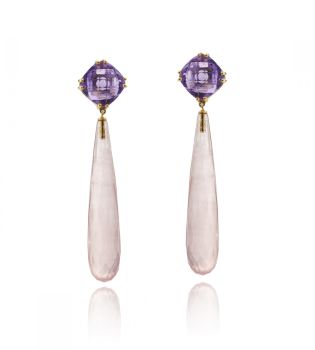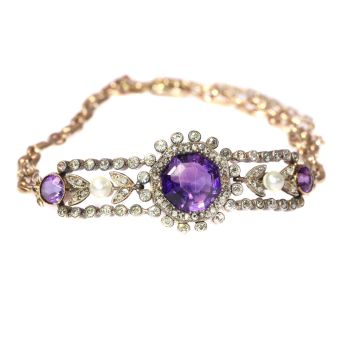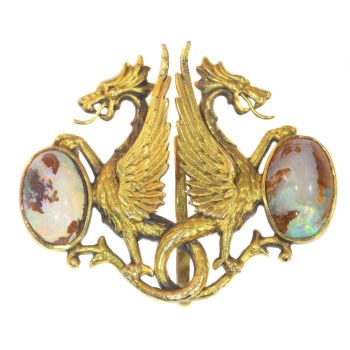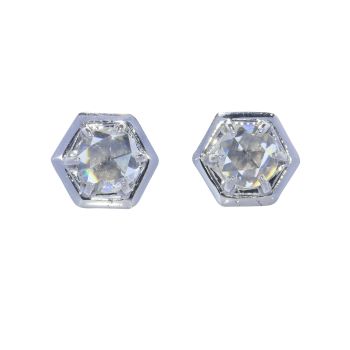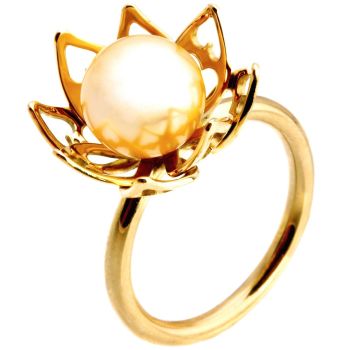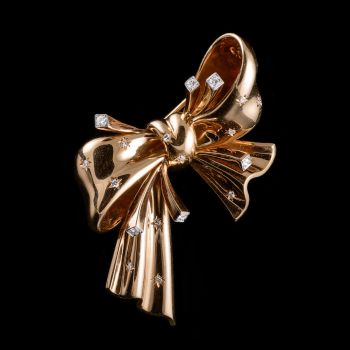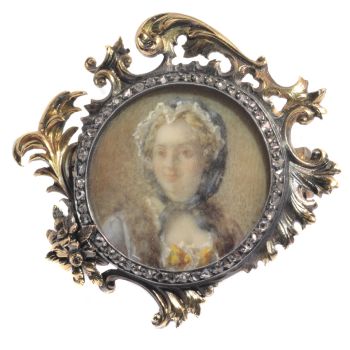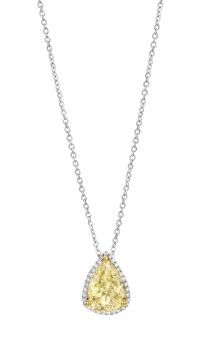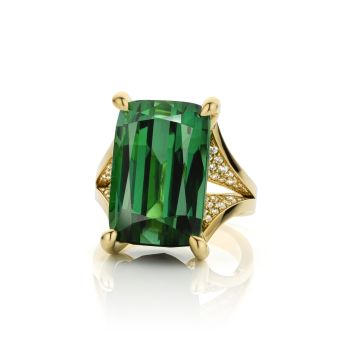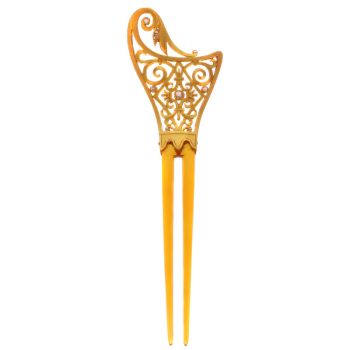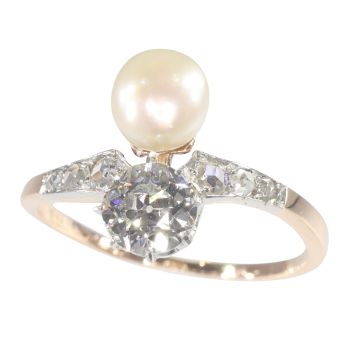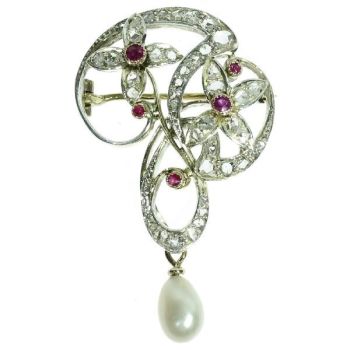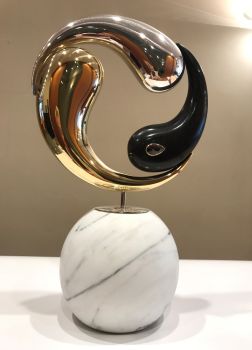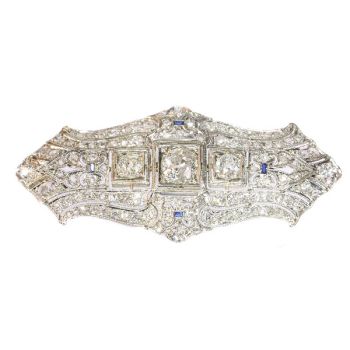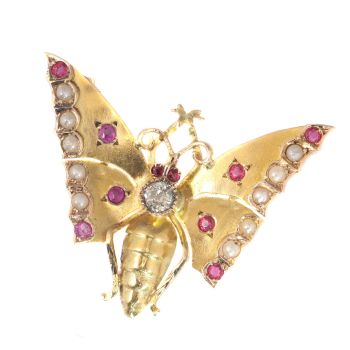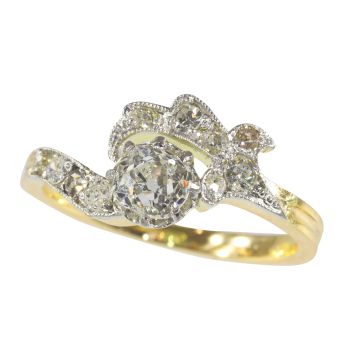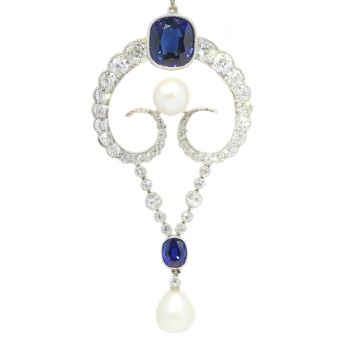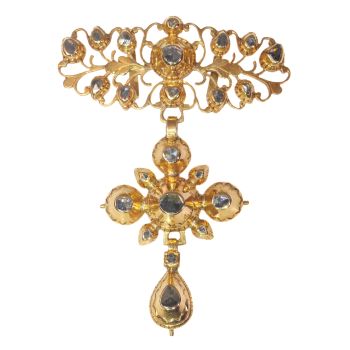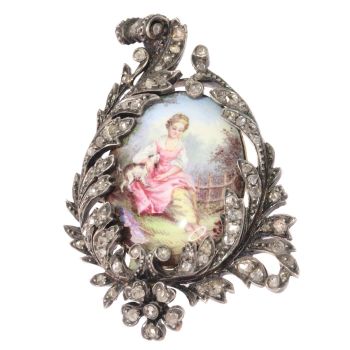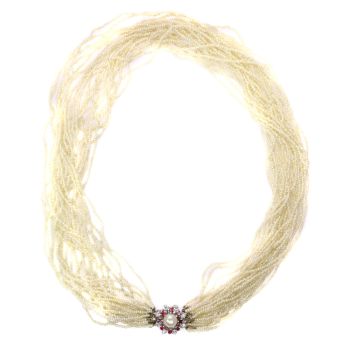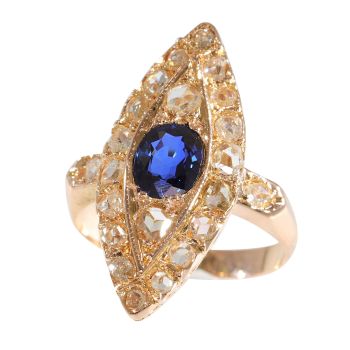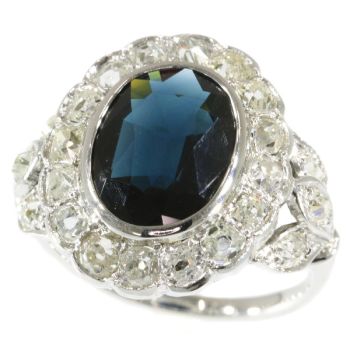Antikes goldenes viktorianisches filigranes Kreuz mit zehn schönen Amethysten Brosche/Anhänger 1850
Unbekannter Künstler
AmethystFiligranGoldEdelstein
€ 3.250
Adin Fine Antique Jewellery
- Über Kunstwerk
Antique jewelry object group: combined brooch-pendant (is being offered without pictured chain)
Condition: very good condition
- (more info on our condition scale)
Country of origin: unknown
Style: Victorian - Victorian decorative arts refers to the style of decorative arts during the Victorian era. The Victorian era is known for its eclectic revival and interpretation of historic styles and the introduction of cross-cultural influences from themiddle east and Asia in furniture, fittings, and Interior decoration. Victorian design is widely viewed as having indulged in a regrettable excess of ornament. The Arts and Crafts movement, the aesthetic movement, Anglo-Japanese style, and Art Nouveaustyle have their beginnings in the late Victorian era.
- See also: Victorianor more info on styles
Period: ca. 1850
- (events & facts of this era, poetry of this era, fashion of this era)
Source of inspiration: Christianity
Theme: Cross - The cross is one of the most ancient human symbols, and is used by many religions, such as Christianity. It is frequently a representation of the division of the world into four elements (or cardinal points), or alternately as the union of theconcepts of divinity, the vertical line, and the world, the horizontal line. (from: Wikipedia)
Material: 14K yellow gold (touchstone tested)
- (more info on precious metals)
Technique: Filigree (formerly written filigrann or filigrane) is a delicate kind of jewel work made with twisted threads usually of gold and silver or stitching of the same curving motifs. It often suggests lace and French from 1660 to the late 19th century. Itshould not be confused with ajoure jewellery work; while both have many open areas, filigree involves threads being soldered together to form an object and ajoure involves holes being punched, drilled, or cut through an existing piece of metal. (from: Wikipedia)
Precious stones: Ten amethysts
Birthstones: Amethyst is the birthstone (or month stone) for February.
- (more info on birthstones)
Hallmarks: No trace.
- (more info on hallmarks)
Dimensions: 7,87 cm (3,10 inch) x 5,43 cm (2,14 inch) - See picture with a ruler in cm and inches
Weight: 12,60 gram (8,10 dwt)
Reference Nº: 19291-0283
Copyright photography: Adin, fine antique jewelry
- Über Künstler
Es kann vorkommen, dass ein Künstler oder Hersteller unbekannt ist.
Bei einigen Werken ist nicht zu bestimmen, von wem sie hergestellt wurden, oder sie wurden von (einer Gruppe von) Handwerkern hergestellt. Beispiele sind Statuen aus der Antike, Möbel, Spiegel oder Signaturen, die nicht klar oder lesbar sind, aber auch einige Werke sind überhaupt nicht signiert.
Außerdem finden Sie folgende Beschreibung:
•"Zugeschrieben …." Ihrer Meinung nach wohl zumindest teilweise ein Werk des Künstlers
•„Atelier von ….“ oder „Werkstatt von“ Ihrer Meinung nach eine Arbeit, die im Atelier oder in der Werkstatt des Künstlers, möglicherweise unter seiner Aufsicht, ausgeführt wurde
•„Kreis von ….“ Ihrer Meinung nach ein Werk aus der Zeit des Künstlers, das seinen Einfluss zeigt, eng mit dem Künstler verbunden, aber nicht unbedingt sein Schüler
•"Art von …." oder „Anhänger von ….“ Ihrer Meinung nach eine Arbeit, die im Stil des Künstlers ausgeführt wurde, aber nicht unbedingt von einem Schüler; kann zeitgenössisch oder fast zeitgenössisch sein
•„Art von ….“ Ihrer Meinung nach ein Werk im Stil des Künstlers, aber späteren Datums
•"Nach …." Ihrer Meinung nach eine Kopie (jegliches Datums) eines Werks des Künstlers
• „Unterzeichnet …“, „Datiert …“. oder „Beschriftet“ Ihrer Meinung nach wurde das Werk vom Künstler signiert/datiert/beschriftet. Das Hinzufügen eines Fragezeichens weist auf einen Zweifel hin
• „Mit Unterschrift …“, „Mit Datum …“, „Mit Aufschrift ….“ oder „Trägt Unterschrift/Datum/Beschriftung“ ihrer Meinung nach die Unterschrift/Datum/Beschriftung von jemand anderem als dem Künstler hinzugefügt wurde
Sind Sie daran interessiert, dieses Kunstwerk zu kaufen?
Artwork details
Related artworks
Unbekannter Künstler
A rare Japanese export lacquer medical instrument box1650 - 1700
Preis auf AnfrageZebregs & Röell - Fine Art - Antiques
Unbekannter Künstler
Zwei Studienporträts von Mas Marco Kartodikromo1900 - 1950
Preis auf AnfrageZebregs & Röell - Fine Art - Antiques
1 - 4 / 12Unbekannter Künstler
Enchanting 1870s Vintage Fly Brooch: Victorian Elegance in Gold1870
€ 4.600Adin Fine Antique Jewellery
 Kuratiert von
Kuratiert vonDanny Bree
1 - 4 / 24- 1 - 4 / 24
- 1 - 4 / 24
Jean-Claude Champagnat
French 18K gold vintage 1960's bejeweled bird of paradise brooch by Jean-Claude Champagnat1960
€ 12.500Adin Fine Antique Jewellery
 Kuratiert von
Kuratiert vonDanny Bree
Mauboussin
Mauboussin Bogenbrosche1950 - 1955
Preis auf AnfrageAns Hemke-Kuilboer Juwelier & Antiquair
1 - 4 / 24- 1 - 4 / 12

